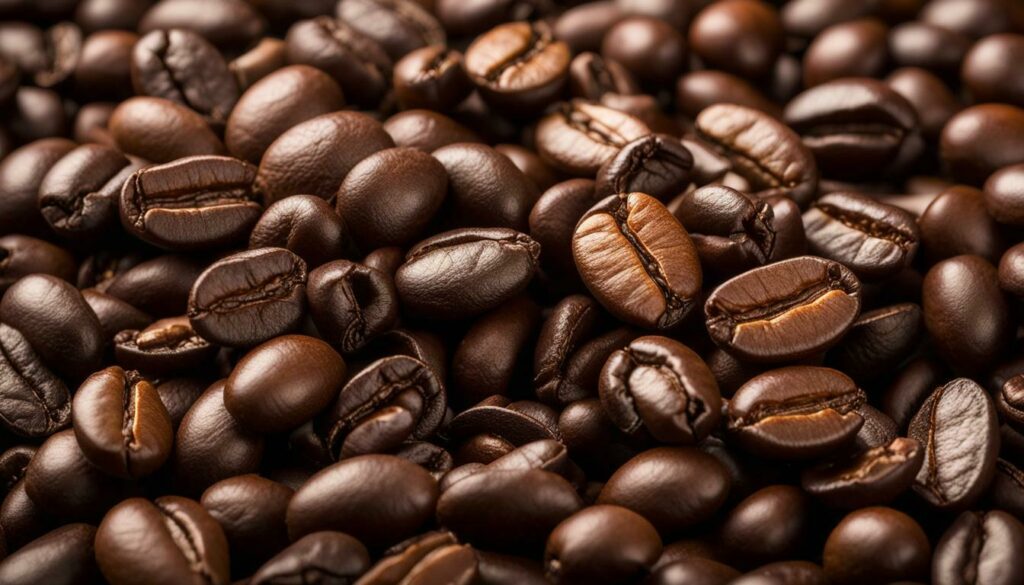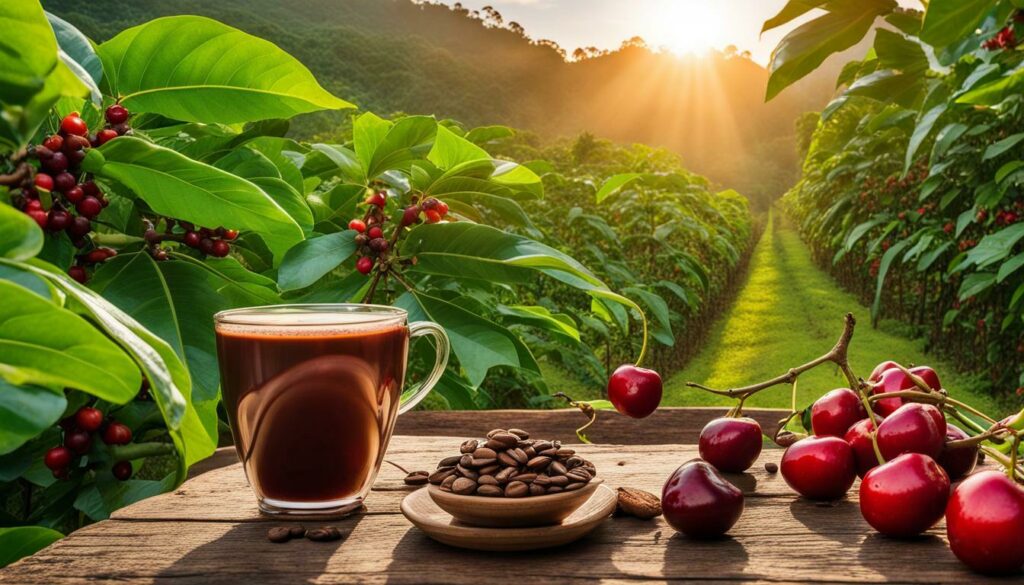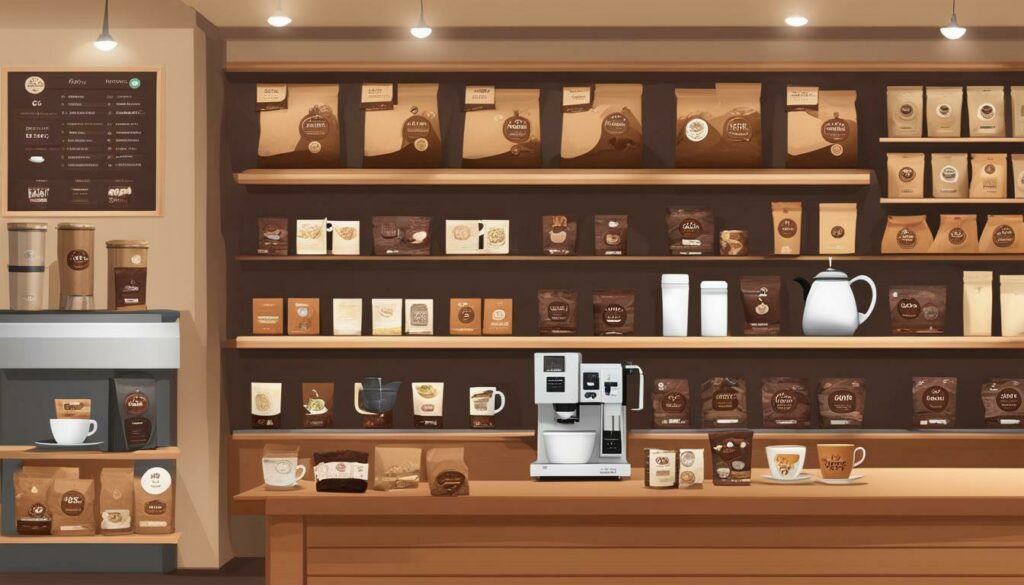Starting the day with the perfect cup of coffee can set the tone for a productive and enjoyable morning. That’s why we’ve created a comprehensive guide to help you navigate the world of coffee and find the perfect brew for your taste and preferences.
Our guide will take you through the different types of coffee, including organic, fair trade, specialty, gourmet, single origin, and arabica. We’ll also discuss the importance of freshness, roasting methods, and purchasing coffee beans online.
By the end of this guide, you’ll be equipped with the knowledge and tools to select the best bean coffee for your morning ritual.
Understanding Organic Coffee Beans
Organic coffee beans are grown using natural and sustainable farming practices that avoid the use of synthetic pesticides and fertilizers. Instead, farmers use compost, crop rotation, and other organic methods to support the health of the soil and surrounding ecosystem. This produces a higher-quality bean with a unique taste and aroma.
Choosing organic coffee beans not only benefits your health and the environment, but also supports fair trade practices and social responsibility. Organic farms are typically small, family-owned operations that rely on fair prices and working conditions to sustain their livelihoods.
- One 2.2 lb. bag of Lavazza Organic Tierra Italian whole coffee beans
Prices pulled from the Amazon Product Advertising API on:
Product prices and availability are accurate as of the date/time indicated and are subject to change. Any price and availability information displayed on [relevant Amazon Site(s), as applicable] at the time of purchase will apply to the purchase of this product.
If you’re looking to incorporate organic coffee into your morning ritual, be sure to look for certifications such as USDA Organic, Fair Trade Certified, or Rainforest Alliance Certified. These labels ensure that the coffee has been produced using sustainable methods that benefit both the environment and the people involved in the production process.
Benefits of Organic Coffee Beans
One of the main benefits of organic coffee beans is their improved taste and aroma. By using natural farming methods, the coffee beans are able to develop unique flavor profiles that can’t be found in conventionally grown beans. Organic coffee also tends to be less acidic and smoother, making it a popular choice for those with sensitive stomachs.
Organic farming practices also support the health of the soil and surrounding ecosystem, providing long-term sustainability for future generations. Additionally, choosing organic coffee beans supports the fair treatment of farmers and workers, helping to ensure that they receive fair wages and working conditions.
“Organic coffee beans are grown using natural and sustainable farming practices that avoid the use of synthetic pesticides and fertilizers.”
Overall, choosing organic coffee beans is a great way to support sustainable farming practices and ethical production methods. With a variety of certifications available, it’s become easier than ever to find organic coffee beans that meet your taste preferences and ethical standards.

Exploring Fair Trade Coffee
When it comes to coffee, ethical and sustainable production is becoming more important than ever. That’s where fair trade coffee comes in. Fairtrade certification is a third-party confirmation that coffee farmers receive a fair price for their crops, allowing them to invest in their communities and improve their working conditions.
In addition to supporting farmers and communities, fair-trade coffee also benefits the environment. Many fair trade coffee producers use organic farming practices, which help reduce the use of harmful chemicals and promote biodiversity on and around the coffee farms.
When you choose fair trade coffee, you can feel good about the impact your purchase is having on the world. So the next time you’re looking to enjoy a cup of coffee, consider reaching for a bag of fair trade beans.

“Fair Trade is not about charity but about giving a fair price for a good product. By supporting Fair Trade, we support a fairer world!” – Mairead McGuinness
Unveiling the World of Specialty Coffee
Specialty coffee is not just an ordinary cup of Joe. It is a product of careful attention to detail, from sourcing the highest quality beans to expertly roasting and brewing them.
One unique characteristic of specialty coffee is its diverse flavor profile. Its taste can range from fruity and floral to nutty and chocolatey, depending on the origin of the beans and the roasting method used. For instance, Ethiopian beans are known for their bright and fruity flavor notes, while Colombian beans offer a well-balanced taste with hints of caramel and chocolate.
- Give this impressive gourmet coffee gift basket filled with a selection of our best and most indulgent roasts and flavored coffee.
Prices pulled from the Amazon Product Advertising API on:
Product prices and availability are accurate as of the date/time indicated and are subject to change. Any price and availability information displayed on [relevant Amazon Site(s), as applicable] at the time of purchase will apply to the purchase of this product.
Another factor that sets specialty coffee apart is the craftsmanship behind its production. Unlike mass-produced commercial coffee, specialty coffee is often roasted in small batches to ensure maximum freshness and flavor. Roasters also pay close attention to variables such as temperature, pressure, and timing to achieve the desired roasting level and flavor profile.
The growing popularity of specialty coffee has led to the emergence of dedicated coffee shops and cafes that specialize in serving the best in the market. These establishments often showcase various brewing methods, such as pour-over, cold brew, and French press, to highlight the uniqueness and complexity of specialty coffee.
Specialty coffee is an excellent option for coffee connoisseurs who value quality, sustainability, and ethical sourcing practices. By supporting specialty coffee, you are not only getting a superior cup of coffee but also contributing to the livelihoods of smallholder farmers and the communities they serve.

The Art of Gourmet Coffee
Gourmet coffee is a term used to describe high-quality coffee that is often associated with refinement and sophistication. It is typically made from premium coffee beans sourced from specific regions and carefully roasted using artisanal techniques.
Gourmet coffee is not just a beverage; it is an experience.
What sets gourmet coffee apart is the attention to detail and the emphasis on quality. Gourmet coffee producers take pride in sourcing the finest beans from around the world and roasting them to perfection. The result is a cup of coffee that is rich, complex, and bursting with flavor.

In addition to using high-quality beans, gourmet coffee producers focus on the roasting process. They experiment with different roasting techniques and temperatures to bring out the best in each variety of bean. The result is a cup of coffee that is rich, smooth, and full-bodied.
One of the most significant selling points of gourmet coffee is the variety of flavors and aroma profiles available. From fruity and floral to nutty and chocolatey, gourmet coffee offers a world of flavors to explore. Each sip is a sensory journey that takes you on a tour of the coffee’s terroir and roasting technique.
Although it is often more expensive than other types of coffee, gourmet coffee is a worthwhile investment for coffee lovers who appreciate the artistry and craftsmanship that goes into each cup.
The Allure of Fresh Roasted Coffee Beans
If you’re a coffee lover, you know that the quality of the coffee you drink can make or break your morning ritual. One of the most important factors in achieving the perfect brew is the freshness of the coffee beans. Freshly roasted coffee beans are essential for achieving optimal flavor and aroma in your cup of coffee.
But what makes freshly roasted coffee beans so special? When coffee beans are roasted, they release oils that contain the characteristic flavors and aromas that we associate with coffee. Over time, these oils evaporate, and the flavor and aroma of the coffee diminish.
When you buy coffee beans that have been freshly roasted, you’re getting beans that still have those flavorful oils intact. This means that you’ll get a richer, fuller, and more complex taste in your coffee. Freshly roasted coffee beans also give off a strong, enticing aroma that can add to the overall coffee-drinking experience.

So, how can you tell if your coffee beans are fresh? One way is to look for a roasting date on the packaging. Coffee beans are at their freshest within two weeks of the roasting date. If you can’t find a roasting date on the package, it’s best to assume that the beans are not very fresh.
To ensure that you’re getting the best possible coffee beans, look for specialty coffee shops that roast their own beans. These shops often have a variety of freshly roasted beans to choose from, and their staff can help you find the perfect beans to match your taste preferences.
Single Origin Coffee
If you are a coffee enthusiast, you may have heard the term “single-origin coffee” and wondered what it means. Simply put, single-origin coffee refers to coffee beans that come from a specific geographic location, such as a single farm, region, or country. Unlike blends that are made up of coffee beans from different locations, single-origin coffee highlights the unique characteristics of the coffee beans from a particular origin.
The emphasis on traceability and terroir in single-origin coffee has made it increasingly popular among coffee connoisseurs. Single-origin coffee beans often have distinct flavor profiles and aromas that are influenced by factors such as soil, climate, and altitude. For example, coffee beans grown in high altitudes tend to have a brighter acidity and floral notes, while beans grown in lower altitudes have a fuller body and chocolatey flavors.
One of the benefits of choosing single-origin coffee is the transparency in the coffee supply chain. Since the beans come from a specific origin, it allows for greater transparency in terms of the sourcing and production of the coffee. Additionally, single-origin coffee can provide a more direct link between the farmer and the consumer, creating a connection and understanding of where the coffee comes from and the efforts put into its production.
When it comes to brewing single-origin coffee, the preparation should focus on highlighting the unique flavor profile of the specific beans. This can be achieved through various brewing methods, such as pour-over, French press, or espresso. Experimenting with different brewing techniques and finding the right ratio of coffee to water can enhance the complexity and nuances of the coffee beans.

“Single origin coffee allows for greater transparency in terms of the sourcing and production of the coffee.”
Whether you prefer a bright and acidic coffee or a full-bodied and chocolatey one, exploring the world of single-origin coffee can provide a unique and exciting coffee experience. With the emphasis on traceability and terroir, single-origin coffee offers a transparent and direct link to the origin of the beans, providing insight into the production and efforts behind the coffee. So next time you’re at your local coffee shop or browsing online, consider trying a bag of single origin coffee and immerse yourself in the unique flavors and aromas of a specific origin.
The Superiority of Arabica Coffee
When it comes to coffee beans, arabica is widely considered the superior option. This high-quality coffee bean is grown at higher elevations, providing ideal growing conditions to develop the complex flavors and aromas for which it is known.
Unlike its counterpart, Robusta coffee, arabica beans have a lower caffeine content and a more nuanced flavor profile. Arabica coffee is often regarded as having a smoother taste with notes of fruit, berries, and even chocolate.
A key factor that sets arabica coffee apart is the attention given to its production. Arabica coffee is typically grown on small farms and subjected to rigorous quality controls throughout the entire process. This attention to detail ensures that the coffee beans are of the highest quality, resulting in a better-tasting cup of coffee.
Arabica coffee is the preferred choice for specialty coffee shops, with many offering single origin Arabica coffee as the centerpiece of their menu. While it may be pricier than Robusta coffee, the superior taste and overall quality make it a worthwhile investment for coffee lovers.

“Of the two types of coffee beans, arabica is superior in quality and taste. Its complex flavor profile and attention to detail during production make it the preferred choice for specialty coffee shops.”
Finding the Best Bean Coffee Online
Shopping for coffee beans online has become increasingly popular in recent years, providing coffee lovers with easy access to a wide variety of options. When searching for the best bean coffee online, keep the following tips in mind to ensure a satisfying purchase experience:
- Read reviews: Take advantage of the wealth of information available from customer reviews. Look for feedback on taste, aroma, and overall quality to help guide your decision.
- Check for freshness: Freshness is key in ensuring the best possible taste and aroma from your coffee. Look for online retailers who provide roast dates or a guarantee of freshness.
- Consider shipping costs: Pay attention to shipping costs, which can vary greatly between retailers. Some retailers offer free shipping with a minimum purchase amount.
- Look for promotions: Many online retailers offer promotions and discounts on their coffee beans. Be sure to check for coupon codes or special offers before making a purchase.
- Choose a reputable retailer: Stick with established retailers with a positive reputation in the coffee industry. Look for certifications such as Fair Trade or USDA Organic to ensure ethical and sustainable practices.
By following these tips, you can confidently search for and purchase the best bean coffee online, ensuring a satisfying morning ritual.

Conclusion
Starting your day with the perfect cup of coffee can make all the difference in setting the tone for a productive and satisfying morning ritual. Throughout this comprehensive guide, we’ve explored the various options for finding the best bean coffee to suit your preferences and needs.
From learning about organic coffee beans and fair trade certification to exploring the world of specialty, gourmet, and single origin coffee, there are numerous avenues to discover and enjoy premium coffee. Understanding the differences between arabica and Robusta beans, as well as the importance of freshness and sourcing, can help you make informed decisions when selecting the best bean coffee.
If you’re looking to purchase coffee beans online, be sure to consider the recommendations provided and choose a trusted source to ensure the quality and flavor profile you desire. Ultimately, the goal is to create a morning ritual that is both enjoyable and effective in fueling your day. So take the time to experiment with different options and discover the best bean coffee for your routine.
FAQ
Q: Can I buy the best bean coffee mentioned in this guide online?
A: Yes, there are many online retailers that offer a wide selection of high-quality coffee beans. Check out Section 9 for tips on finding the best bean coffee online.
Q: What is the difference between single origin coffee and blends?
A: Single origin coffee comes from a specific region or farm, while blends are a combination of beans from different origins. Section 7 provides more information on single origin coffee and its unique characteristics.
Q: How do I identify freshly roasted coffee beans?
A: Look for beans with a roasted date label or purchase from reputable sources that prioritize freshness. Section 6 discusses the allure of fresh roasted coffee beans and provides tips on identifying them.
Q: Why is Arabica coffee considered superior?
A: Arabica coffee is known for its superior flavor and quality compared to Robusta coffee. Section 8 explains the differences between Arabica and Robusta coffee and highlights the perceived superiority of Arabica beans.
Q: What is the significance of fair trade coffee?
A: Fair trade coffee ensures that farmers receive fair prices for their crops and promotes sustainable and ethical farming practices. Section 3 explores fair trade coffee in more detail.














